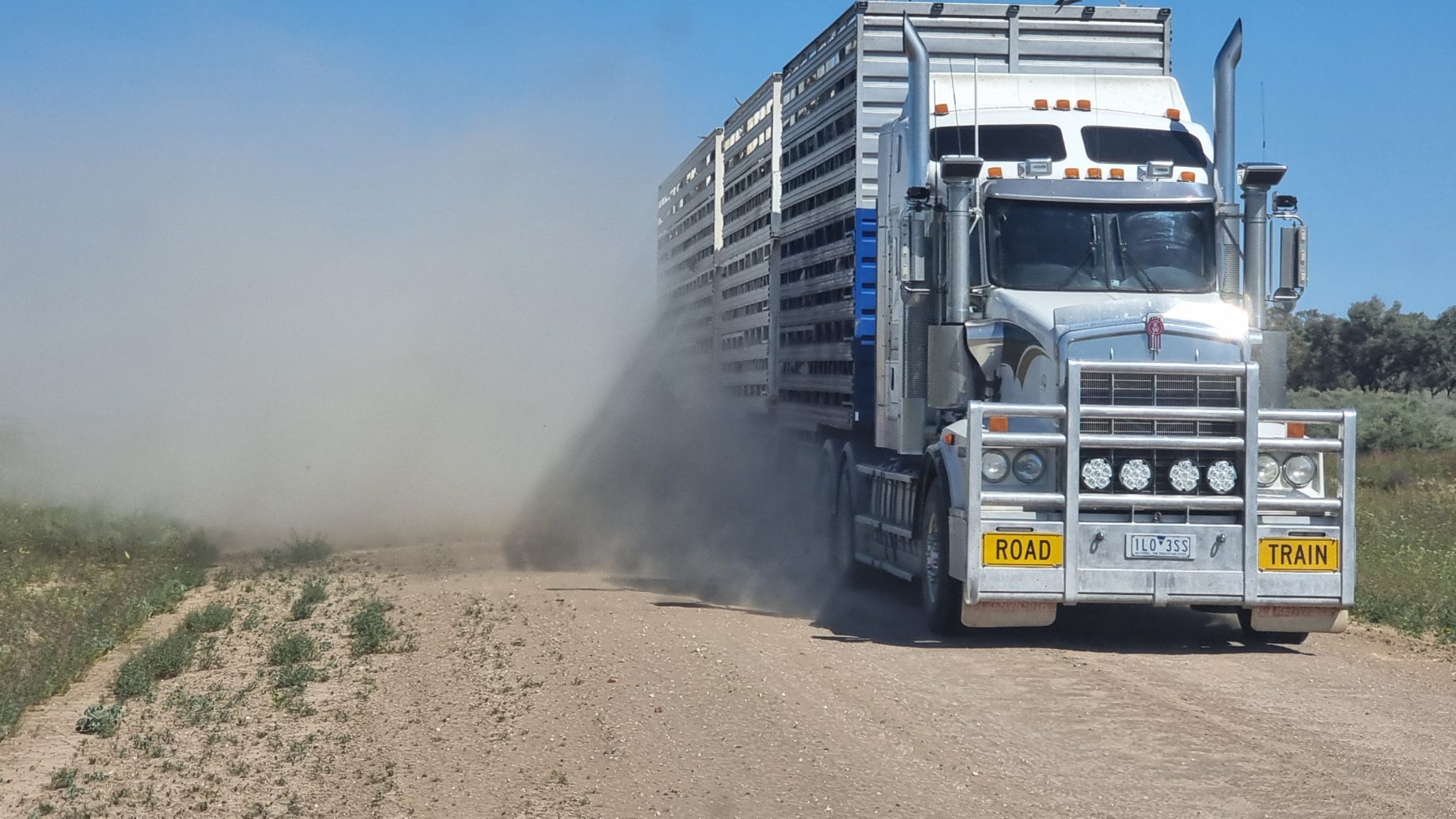It was 5.3C when we woke this morning beside the Darling River on Rose Isle Station. Understandably, neither of us were in a hurry to get out of bed. The early morning was a repeat of so many mornings on this trip – a clear, cloudless sky overhead with no breeze as the sun rose above the eastern horizon, spilling warmth onto everything it touched.
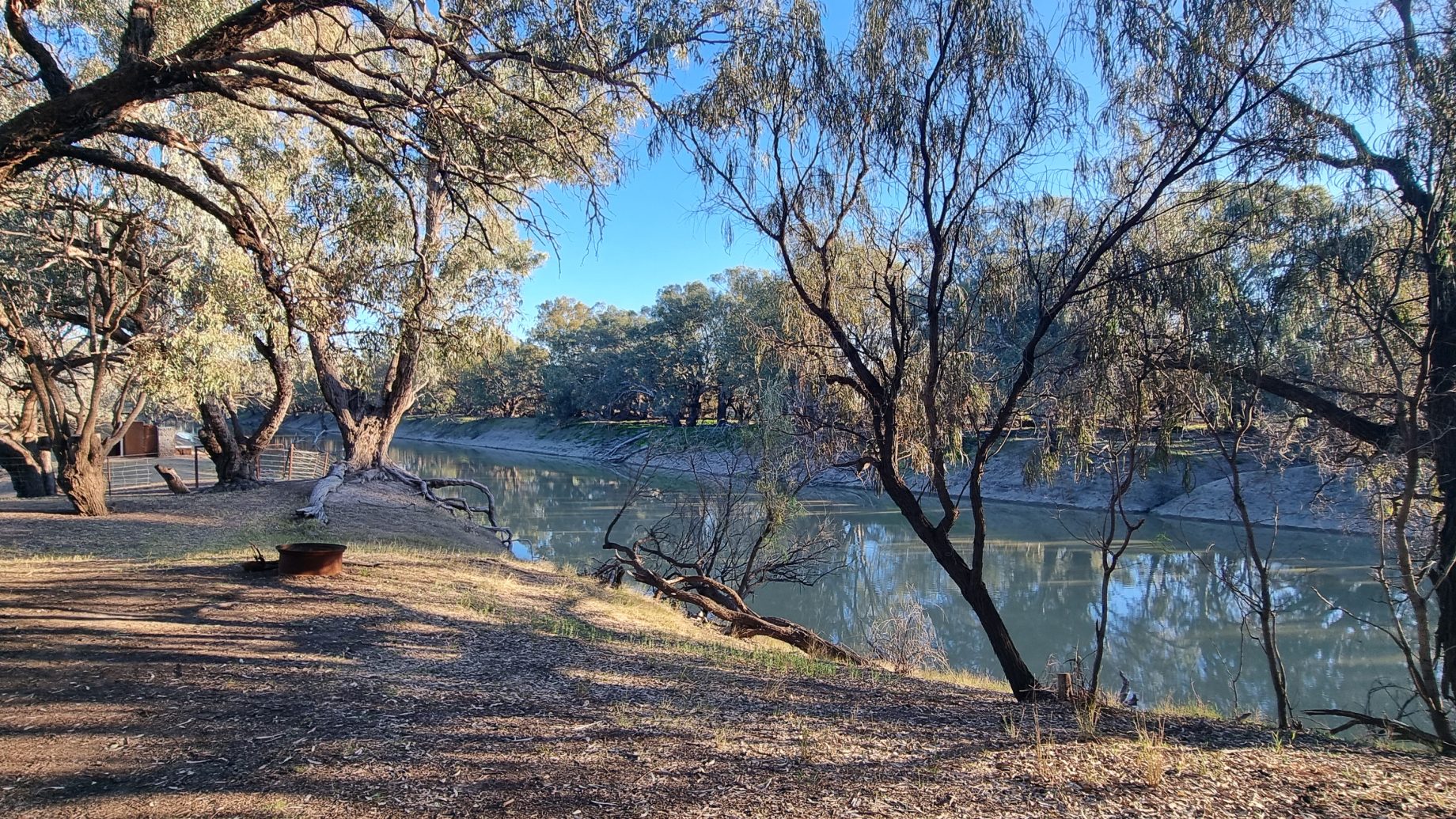
Chris took advantage of the hot showers up near the homestead before breakfast. It must have been cool as he was wearing a warm top for the first time in weeks. We watched birds wake to a new day along the riverbank, with the odd fish breaking the surface and drawing attention to itself. Another camper wandered down and asked if they could check out our setup which we were more than happy for them to do.
Rose Isle Station does a wonderful home-baked morning tea a few mornings every week during peak season and today was one of those days. It was a pity that we didn’t have time to participate in today’s spread of savoury and sweet offerings – we know from our previous visit that the freshly baked scones, slices, muffins and fritters are delicious. These morning teas are served in the camp kitchen, on a table that easily seats 12, and provide a good opportunity to chat with station workers as well as fellow travellers.
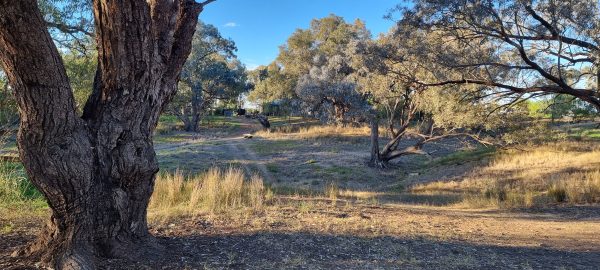

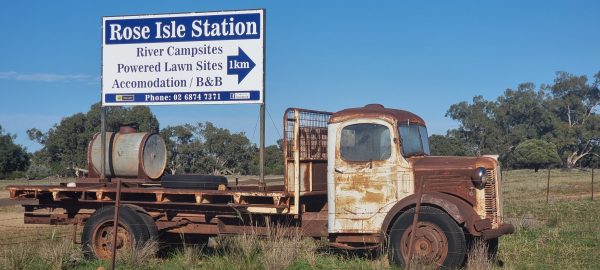
Chris had checked the roads ahead on our maps overnight – it seemed that the tracks to the east of the Darling River were the better ones to follow as far as the small town of Wilcannia. From there it was best to cross the Darling River and continue our southward drive to Menindee on the western side of the Darling. Whether this made any difference to our travel time or comfort we’ll never know.
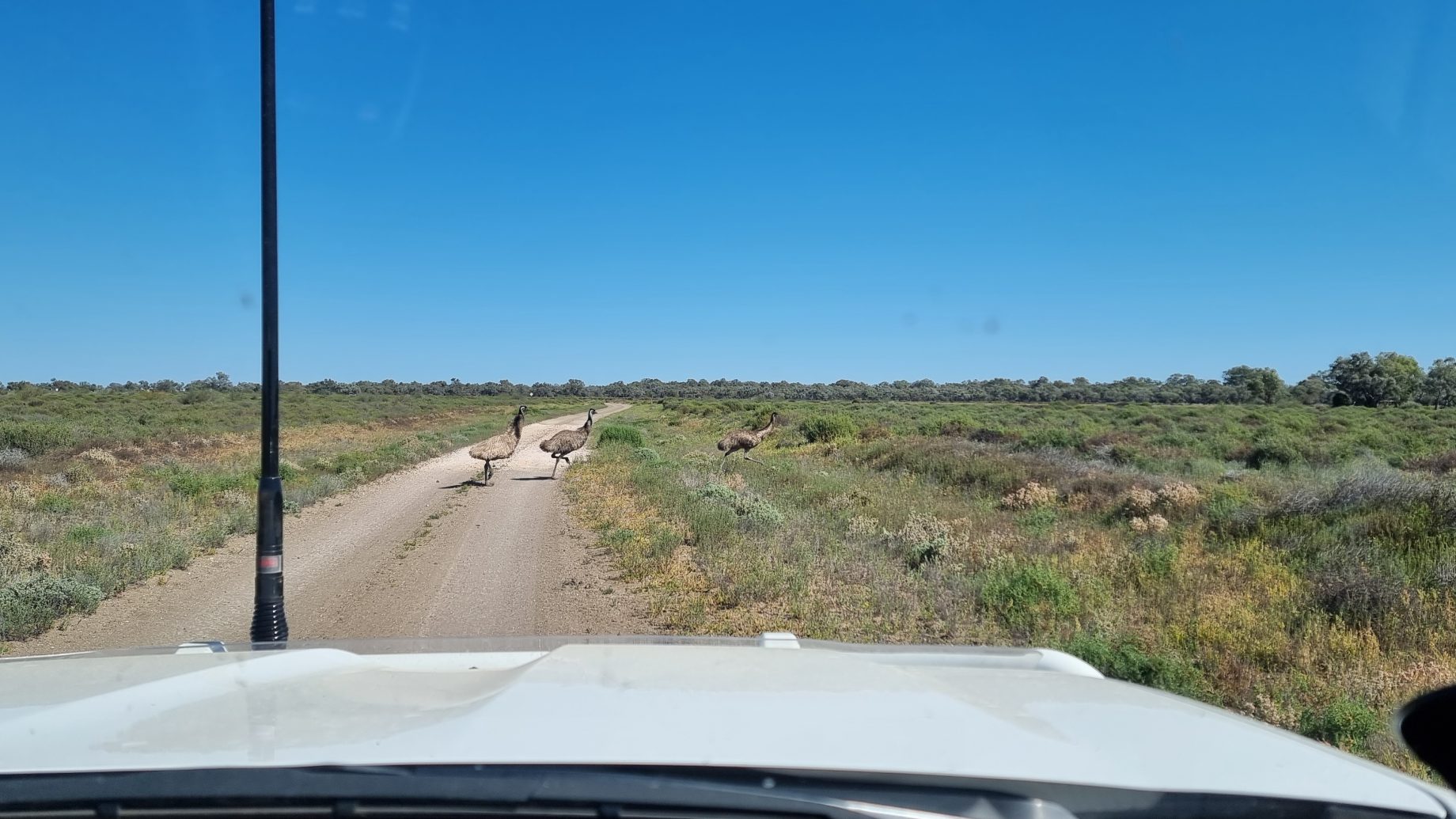
The towns that sit beside the Darling River south of Bourke were originally ports, serviced by paddle steamers before roads and rail lines reached into the interior of the country. Louth was the first of such towns we passed – it also has the first bridge over the Darling River south of Bourke. Wilcannia, where we stopped for coffee, was once a major stopover for the paddle steamers and considerable effort has gone in to restoring the grand stone buildings nestled around where the jetty was located.
Menindee, further south again, is another former paddle steamer stopover. It also features significantly in the fateful Burke and Wills expedition of 1860-61, as it was the last colonial outpost for the expeditioners on their journey north. It was used as a major depot for their supplies; these were then moved north as sites with reliable water were selected and subsequently stocked with some of those supplies carted up from Menindee. The Menindee pub was already established when the expedition arrived and, from all accounts, benefited from their presence.
The drive from Rose Isle Station to Menindee was almost entirely on gravel roads and tracks of variable quality. Signs warned that the tracks would be closed quickly if rain started falling. It was easy to see why this action would be taken, as the area we travelled through all day is flat (very flat!) Darling River floodplain. The tracks would quickly turn into a sticky, boggy mess that would become a hazard for drivers and a problem for council workers to repair. Fortunately the track today was dry and dusty.
Multiple sightings of emus and feral goats were a change after tick-resistant cattle further north in the Channel Country. We remained ever-watchful as we approached various mobs of emus, as they have a bad habit of darting in front of the Prado just when you think they are running out of the way.
Wilcannia became our only stop for the day. Restoration efforts have been directed at the post office, police station and court buildings while work continues on a building that may eventually become a visitor information centre. The local café was doing good business when we queued for our coffees; we then sat out on the verandah and watched the world go by while taking a break from the rough and dusty tracks.
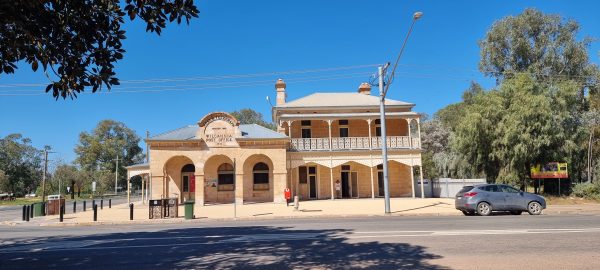

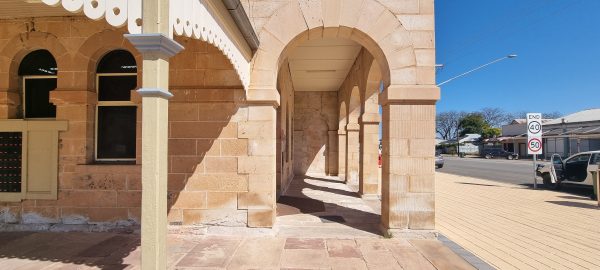
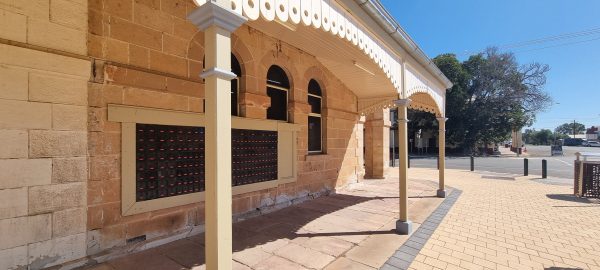
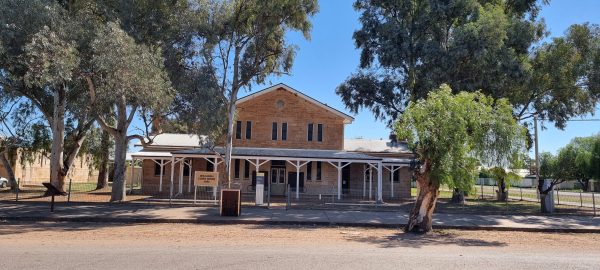
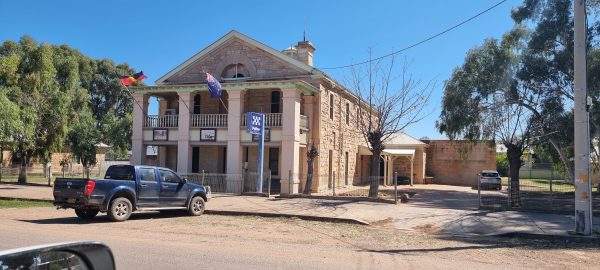
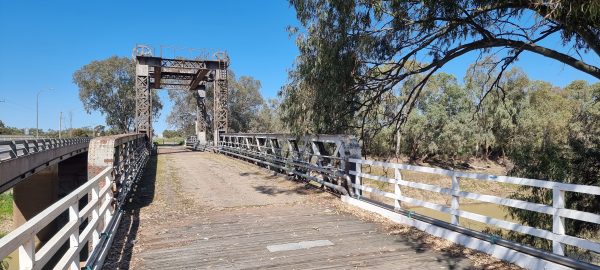
After the break in Wincannia, the tracks southward maintained the standard we had become accustomed to – dry, dusty and rough in places. Our journey eventually connected with the Barrier Highway (a sealed highway with 110kph speed limit) just 16kms to the west of the Menindee township.
Tonight we are again camped beside the Darling River in the Kinchega National Park. We have watched feral goats walk in a procession along the opposite bank of the river. Pelicans have cruised up and down the river while cormorants have been diving for anything worth eating.
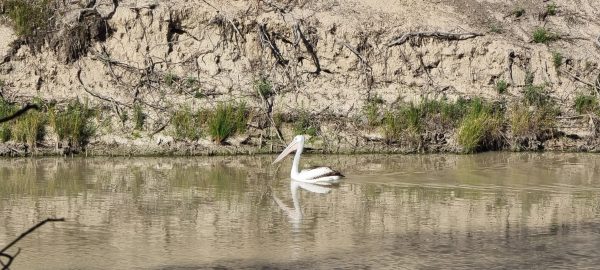
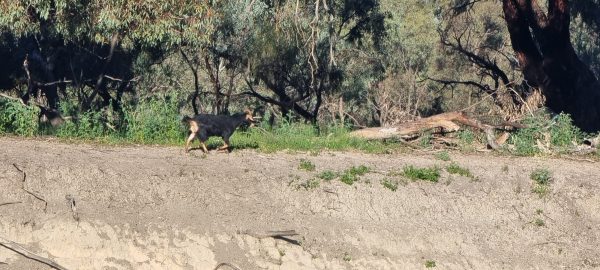
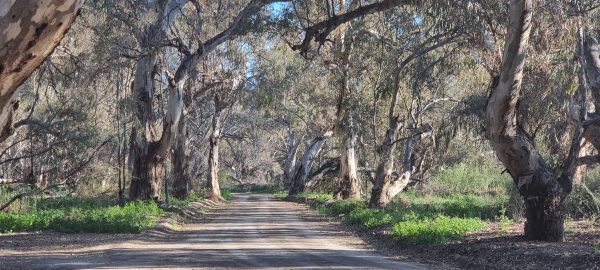
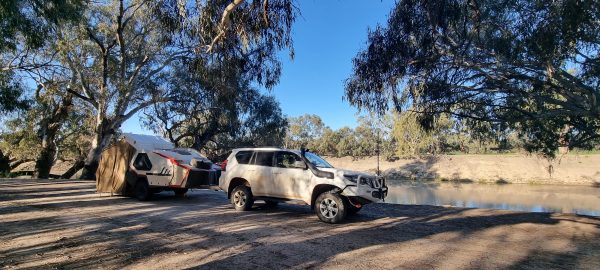
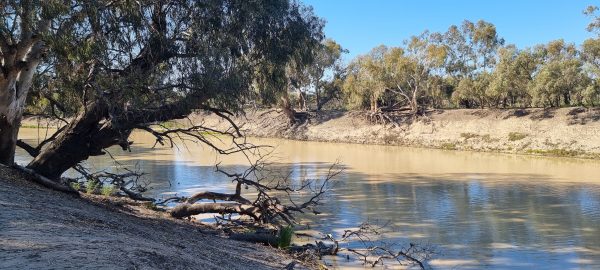
The westerly wind is beginning to ease as the sun makes its slow journey towards the western horizon. We are expecting a cool night and maybe, just maybe, the heater in the Tvan might get a work out again.
